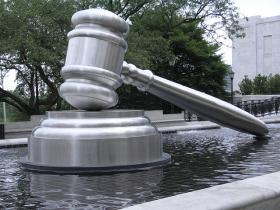Note: This article is part of an ongoing series on Board Directors. To learn more about their roles and responsibilities, download this free eBook today Director's Guidebook: How to be an Effective Board Director in Early Stage Companies or purchase our books at Amazon.com.

While being a great director is often about adding strategic business value, and it is safe to say that thriving companies give rise to less risk than failing ones, there are some legal requirements which come with the job. Most of them are rooted in common-sense, but it is important to understand that you are a legal fiduciary to the shareholders, and to understand what that means. These duties cannot be shirked, delegated, or ignored, and they rest upon you until your resignation is formally accepted.
Attributes of a Great Fiduciary:
- Careful and Prudent – Duty of care requires you to exercise good business judgment and use ordinary care and prudence in guidance of business
- Loyal – Duty of loyalty requires you to put the company’s interests ahead of your own (conflicts of interest and breaches of confidentiality violate this duty of loyalty, even where accidental)
- Faithful – Duty of good faith requires you to act with honesty and genuinely good intentions
Attributes of an Inadequate Fiduciary:
- Reckless or Careless – poorly conceived or documented decision-making process
- Self-Dealing –involvement in board matters in which you have a direct OR indirect personal interest (other than as a shareholder)
- Loose-Lipped – failure to keep company confidences is a serious issue
- Dishonest or Opaque – failing to be honest and transparent about your motives or the reasons for your views can lead to serious issues
Core Fiduciary Duties
Board members owe a fiduciary duty to the corporation (and secondarily to the shareholders and creditors). Fiduciary duty is the highest standard of care under both legal and ethical domains – it is a legal relationship of trust relative to your principal (i.e. company, shareholders and creditors). A fiduciary may obtain assistance, but must select help with care. Regardless of assistance, a fiduciary cannot delegate their duties – the duty is permanently attached until an effective resignation (and expiration of statute of limitations).
Duty of Care: A board member must exercise good business judgment and use ordinary care and prudence in their guidance of the business.
Duty of Loyalty: Directors must put the companies’ interests ahead of their own and should keep in mind that any breach of confidentiality or conflict of interest violates this duty of loyalty.
Duty of Good Faith: Directors must act with candor and genuinely beneficent motives, and are judged on this quite harshly after the fact. Jurisdictions vary on whether this is an official duty, but it is almost always applied after the fact, so directors are very wise to behave as though it is an official duty.
Core Legal Duties - Governance
In addition to its over-arching fiduciary obligations, the law in all jurisdictions imposes basic responsibility for the governance of the company on its board. Most of these concepts can be inferred from other sections of this guide, but it is worth repeating here. Regardless of the state of incorporation or stage of the company, all boards are typically responsible for the basic governance of their company through:
- Policy setting and enforcement
- Evaluation (and replacement) of the CEO
- Determining the adequacy of financial resources
- Approving annual budgets
- Making account to stakeholders for company performance
Test of Adequacy – Availability of the Business Judgment Rule
The sole test of the adequacy of the governance provided by a board is whether the board can avail itself of the protections of the business judgment rule. This is a basic rule giving very fundamental protection to directors who do their best. Under the business judgment rule, directors do not have to be correct, they just have to use proper care. The business judgment rule states that a director’s business judgment will not be questioned or give rise to liability unless it can be shown that the director acted:
- In haste without proper diligence or process (preparation, materials, undue reliance on experts)
- In abuse of appropriate discretion, or
- In breach of a fiduciary duty
Special Duties During Financial Crisis or at Insolvency
Financial crisis brings new duties to the fore. Once a company becomes insolvent, its directors owe fiduciary duties to the company for the benefit of its creditors, while at the same time attempting to maximize the economic value of the firm for any potential residual benefit to the shareholders. In other words, creditors become a source of liability in addition to shareholders when a company becomes insolvent. When a company is in the “zone of insolvency” the directors’ duties are unchanged. Directors must continue to discharge their fiduciary duties to the company and its shareholders by exercising their business judgment in the best interests of the company for the benefit of its shareholders. However, the risks are higher and the potential for creditor liability looms, so directors may want to proceed carefully and thoughtfully especially with respect to expenditures, observe good board process meticulously, and may choose to retain separate counsel to advise the board if a serious conflict between duties to the company and to potential creditors arises.
Practical Tips:
- Directors have legal duties which cannot be ignored.
- Good decision-making process is the key to discharging these duties.
- Effective directors will strike a healthy balance between oversight duties and adding business value.
- Certain matters, such as properly paying wages and withholding taxes, give rise to personal liability for directors and should be overseen rigorously.
Want to learn more about the roles and responsibilities of Directors? Download this free eBook today Director's Guidebook: How to be an Effective Board Director in Early Stage Companies or purchase our books at Amazon.com.

